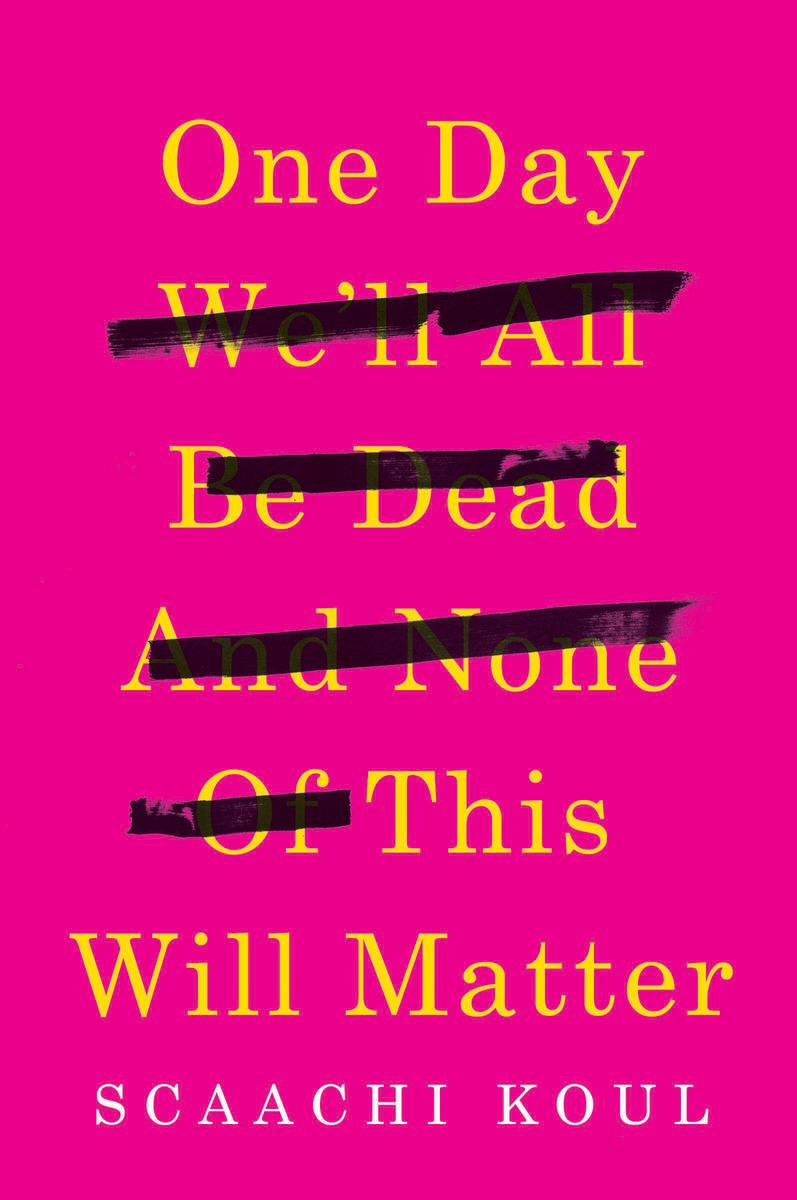One Day We'll All Be Dead and None of This Will Matter: Essays by Scaachi Koul, book review
Fierce, funny and unapologetic, Canadian author Scaachi Koul uses sharp wit and candid humour to confront issues of sexism, racism and stereotypes in her debut book

Your support helps us to tell the story
From reproductive rights to climate change to Big Tech, The Independent is on the ground when the story is developing. Whether it's investigating the financials of Elon Musk's pro-Trump PAC or producing our latest documentary, 'The A Word', which shines a light on the American women fighting for reproductive rights, we know how important it is to parse out the facts from the messaging.
At such a critical moment in US history, we need reporters on the ground. Your donation allows us to keep sending journalists to speak to both sides of the story.
The Independent is trusted by Americans across the entire political spectrum. And unlike many other quality news outlets, we choose not to lock Americans out of our reporting and analysis with paywalls. We believe quality journalism should be available to everyone, paid for by those who can afford it.
Your support makes all the difference.One day we’ll all be dead and none of this will matter. It’s a strangely comforting – and liberating – phrase.
It also seems to be the guiding philosophy that has led Canadian author Scaachi Koul to write one of the most candid and definitive representations of an entire generation.
In her debut book – a whirlwind collection of confessional essays about life growing up in a Western culture as the millennial daughter of Indian immigrants – Koul uses her sharp wit and blunt humour to confront broader issues from racism, sexism and rape culture to self-image, love and family.
For the uninitiated, Koul, a culture writer for BuzzFeed, has already gained a reputation in the Twitterverse as a source of hilarity and a feminist force to be reckoned with. The writer rarely shies away from the opportunity to tell the world exactly what’s on her mind, even in the face of unrelenting trolls.
Her new collection of essays flows in a way that few anthologies manage to do, piecing together the larger narrative of her life through a series of anecdotes that made me both laugh and cry on public transport – and all on the same journey, too.
The author’s stories of life growing up in Canada – “a land of ice and casual racism” – and dealing with internet bullies in a digital age are ones any millennial will be able to relate to – but much of Koul’s brilliance lies in her ability to artfully deconstruct the effects of immigration and the realities of living as a woman – and as a woman of colour – in the 21st century.
Writing about her cousin, Sweetu, who plans to move from India to Appalachia with her husband days after their wedding Koul writes: “That’s where the pieces of the family get fragmented again. That’s where her children will lose this language eventually, where their children will not even be sure where their grandmother was from. That’s where India becomes a place she was from and not a place she lives. That’s where her roots get pulled out.”
In Canada – the first country in the world to adopt multiculturalism as an official policy – feeling “rootless” is a way of life for many, especially for those, like myself, whose roots stem from a jumble of places across the globe, as if we were born via anemophily. When you’re two-parts Portuguese, one-part Indian, one-part Pakistani and 100 per cent Canadian, it’s hard not to take pause when someone asks you: “where are you from?”
Koul speaks to this experience of an increasingly globalised world in an unequivocal way that few have been able to accomplish. “So much of immigration is about loss. First you lose bodies: people who die, people whose deaths you missed. Then you lose history: no one speaks the language anymore, and successive generations grow more and more westernised.”
The author segues effortlessly from such poignant truths to side-splitting yarns from the mortifying experience of having to be cut out of a skirt with a faulty zipper at a clothing store to breaking down her hilarious exchanges with her father, Papa, who is proof that comedic genius just might be hereditary. Each chapter in ODWABDANOTWM – which, by the way, is probably too long to qualify as an acronym – is separated by comical, but meaningful, exchanges between the two, with Papa offering sardonic nuggets of wisdom such as: “You’re coming home tomorrow. We have to find the good in everything, I suppose.”
Ultimately, it is the story that unfolds about the author’s relationship with her father that binds Koul’s essays together so cohesively. It’s also what makes her book so universally relatable, as much an ode to millennials as a symbol of the clash of generations that has likely been unfolding in households around the world since the dawn of humanity.
One Day We'll All Be Dead and None of This Will Matter: Essays by Scaachi Koul, Picador, £12.09
Join our commenting forum
Join thought-provoking conversations, follow other Independent readers and see their replies
Comments